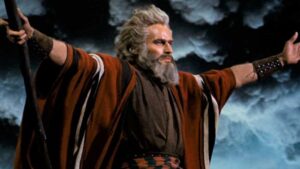Dean MacNeil couldn’t eat. Couldn’t sleep. He was on emotional autopilot because something “tore a hole in the soul of my family and me.”
It was the summer of 1991, and MacNeil had taken a road trip from Connecticut to Vermont with his younger brother, Scott. They hiked, jet-skied and spent much of the time listening to Scott’s favorite musician, reggae superstar Bob Marley.
A couple of weeks after the trip, a phone call came at midnight. Scott had been killed in a car accident. He was a passenger in another teenager’s car when it slammed into a tree. He was on his way home from a reggae concert. MacNeil was devastated.
He found refuge, though, in Marley’s music. He started listening to Marley’s songs again and discovered something: Biblical verses were scattered like gems through virtually every one of them. The lyrics weren’t just nods to the Bible but lengthy scriptural quotations that called the listener to believe that no matter what kind of “changes” and “rages” they were experiencing, they could “never be blue,” as Marley says in “Forever Loving Jah,” a nod to the Rastafarian religion’s name for God.
“That accident really sent my sister, mom, dad and myself into a tailspin,” MacNeil says today. “But Bob Marley’s music is what got us through. It helped us deal with the grief and the despair by listening to these messages of hope and perseverance. I went to the classroom of Bob Marley, because my very survival depended on it.”
MacNeil found new meaning in the Marley adage: “You never know how strong you are until being strong is your only choice.” He started leading Bible studies at his church and completed a master’s degree in theology. He also became a musician and author of a book, “The Bible and Bob Marley: Half the Story Has Never Been Told.”
Today, as Marley’s life is celebrated in a new hit movie, MacNeil and others make a bold claim: Marley’s spiritual impact is as significant as his musical legacy. The two are, in many ways, inseparable. These Marley fans and scholars say it’s time to stop glossing over or editing out Marley’s “subversive spirituality.”
“The Bible was as important to Marley’s music as his guitar,” MacNeil says. “You really need to know the Bible to understand Marley’s message.”






